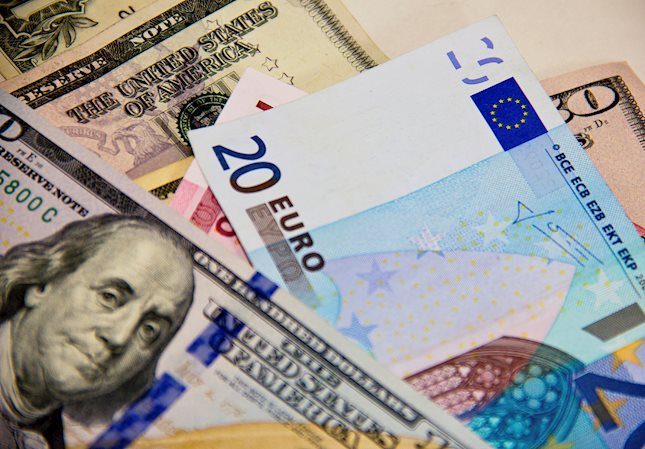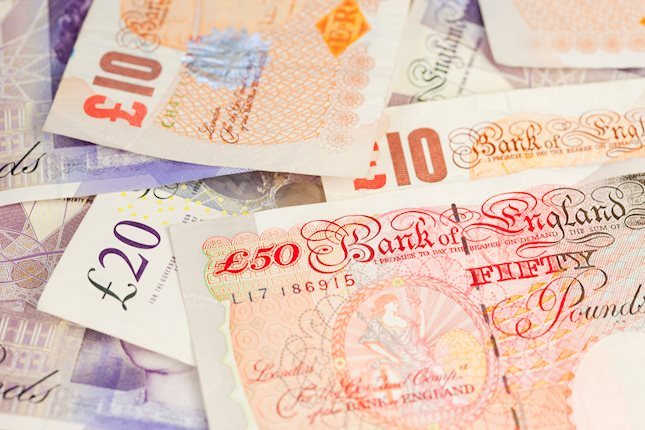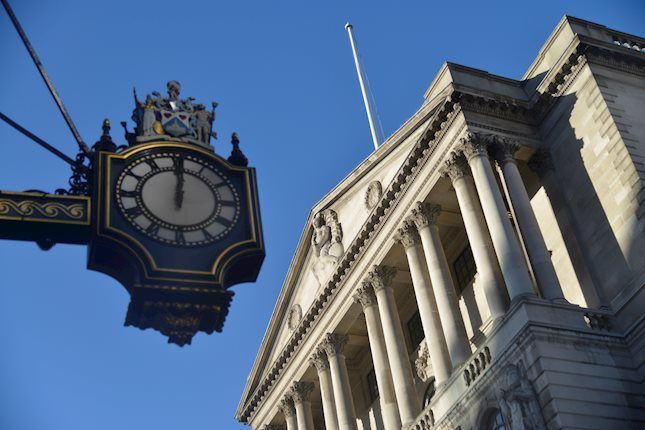Worrying news on the Eurozone economy continues to come in, although this is not hurting the single currency so far, which is trading at fifteen-week highs at 1.0950.
Germany's business climate index rose from -28.3 to -27.8 in December but remains deeply negative. According to the report, Germans expect their incomes to decline slightly. Their propensity to spend is picking up slightly due to entrenched inflation expectations, but they struggle to reflect a rebound in consumer activity.
A separate report from the ECB noted a slowdown in loan growth in the eurozone to 0.6% y/y - the slowest in 8 years. However, the worst is apparently ahead for the indicator, judging by the dynamics of monetary aggregates. Trends in monetary aggregates M1-M3 are generally more than a year ahead of credit trends.
Monetary aggregate M1 is now 10% lower than a year earlier. It has been in negative territory so far this year. M3 in October was 1% lower than a year ago. In both cases, it is stabilising near historic lows, reflecting tightening financial conditions.
EURUSD's strength is now driven by high hopes for a Fed rate cut soon, but the weakness in Eurozone indicators should set the mood that a policy change from the ECB could be earlier and deeper, not saying that the US already has higher rates. This is a long-term negative for the single currency. However, markets prefer to play down US policy changes first.
Trade Responsibly. CFDs and Spread Betting are complex instruments and come with a high risk of losing money rapidly due to leverage. 77.37% of retail investor accounts lose money when trading CFDs and Spread Betting with this provider. The Analysts' opinions are for informational purposes only and should not be considered as a recommendation or trading advice.
Recommended Content
Editors’ Picks

EUR/USD extends recovery beyond 1.0400 amid Wall Street's turnaround
EUR/USD extends its recovery beyond 1.0400, helped by the better performance of Wall Street and softer-than-anticipated United States PCE inflation. Profit-taking ahead of the winter holidays also takes its toll.

GBP/USD nears 1.2600 on renewed USD weakness
GBP/USD extends its rebound from multi-month lows and approaches 1.2600. The US Dollar stays on the back foot after softer-than-expected PCE inflation data, helping the pair edge higher. Nevertheless, GBP/USD remains on track to end the week in negative territory.

Gold rises above $2,620 as US yields edge lower
Gold extends its daily rebound and trades above $2,620 on Friday. The benchmark 10-year US Treasury bond yield declines toward 4.5% following the PCE inflation data for November, helping XAU/USD stretch higher in the American session.

Bitcoin crashes to $96,000, altcoins bleed: Top trades for sidelined buyers
Bitcoin (BTC) slipped under the $100,000 milestone and touched the $96,000 level briefly on Friday, a sharp decline that has also hit hard prices of other altcoins and particularly meme coins.

Bank of England stays on hold, but a dovish front is building
Bank of England rates were maintained at 4.75% today, in line with expectations. However, the 6-3 vote split sent a moderately dovish signal to markets, prompting some dovish repricing and a weaker pound. We remain more dovish than market pricing for 2025.

Best Forex Brokers with Low Spreads
VERIFIED Low spreads are crucial for reducing trading costs. Explore top Forex brokers offering competitive spreads and high leverage. Compare options for EUR/USD, GBP/USD, USD/JPY, and Gold.